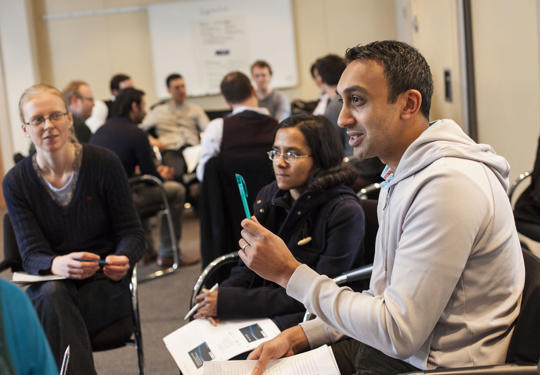The Royal College of Physicians (RCP) has responded to the GMC 2025 national training survey.
Dr Mumtaz Patel, RCP president, said:
‘This year’s GMC national training survey should remind us that many early career physicians are working under enormous pressure.
‘Rota gaps are severely affecting the quality of medical training and the fact that over a fifth of trainees felt hesitant about escalating patient care should be a clear warning for us all. It’s reassuring that so many rated their teaching and clinical supervision as high quality and testament to the hard work and determination of our consultants and specialist doctors.
‘However, with one in five doctors in training at high risk of burnout, half reporting that their work is emotionally exhausting to a high or very high degree, and a third saying their work frustrates them to a high or very high degree, clearly the system is not doing enough to support the next generation of NHS doctors.
‘If doctors feel unable to speak up when they have concerns, this poses an enormous risk to patient safety and is entirely unacceptable. High quality patient care relies on people feeling safe to speak up.’
Dr Anthony Martinelli and Dr Catherine Rowan, co-chairs of the RCP Resident Doctor Committee added:
‘These survey results reveal the stark reality for physicians. Whilst we have dedicated trainers, the system is failing to provide the supportive environment needed for effective learning. Medical resident doctors are at a higher risk of burnout (22%) and facing a heavier workload (49%) than even other hard-pressed specialties.
‘Our next generation campaign is calling for a modern and supportive training system, but this survey shows how training is too often being sacrificed for service. A third of our trainers report that rota gaps are harming education, and we see the direct impact in the lack of opportunities for trainees to develop essential consultant skills, including in leadership where Medicine again ranks amongst the worst.
‘We must protect time for education, invest in supervisor capacity, and tackle discrimination. These survey results reinforce why the ideas in the 10 Year Health Plan and the national review of medical training must be followed by swift, radical action from governments, employers, and national bodies to ensure we can train the doctors the NHS so desperately needs.’
Dr Seán Coghlan, chair of the RCP Student Foundation Doctor Network, agreed:
‘Doctors need to feel safe, respected and valued if we want them to stay and build their career in the NHS.
‘It’s important that we don’t ignore growing competition ratios for training posts that are leading to bottlenecks in the system. For many doctors, this isn’t just about taking time out of the system, or even working flexibly, it’s about simply being unable to find a training post.
‘The RCP’s position statement on competition ratios is clear that this must be addressed as a matter of urgency. Too many doctors find themselves stuck in limbo after they complete the foundation programme, and without enough NHS training jobs, we risk abandoning an entire generation of medics. The future of the NHS depends on it.’





